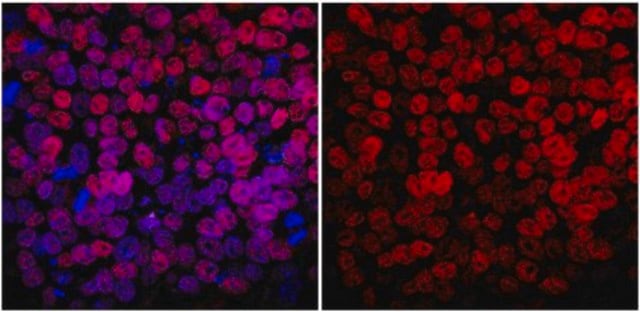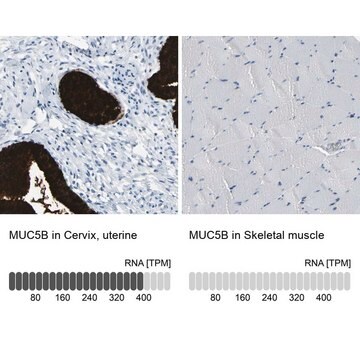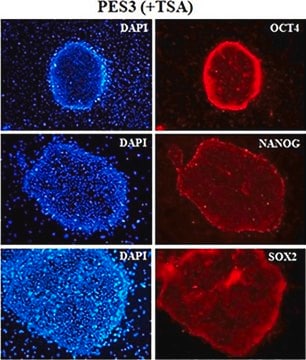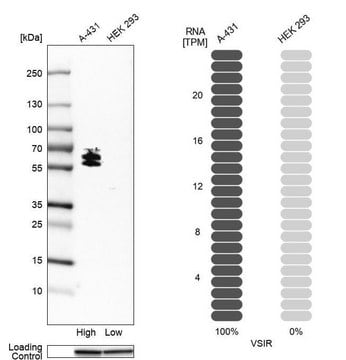FCMAB116P
Milli-Mark Anti-SSEA-4-PE Antibody, clone MC-813-70
clone MC-813-70, Milli-Mark®, from mouse
About This Item
Produits recommandés
Source biologique
mouse
Niveau de qualité
Conjugué
PE
Forme d'anticorps
purified antibody
Type de produit anticorps
primary antibodies
Clone
MC-813-70, monoclonal
Espèces réactives
human
Fabricant/nom de marque
Milli-Mark®
Technique(s)
flow cytometry: suitable
immunocytochemistry: suitable
Isotype
IgG3κ
Conditions d'expédition
wet ice
Modification post-traductionnelle de la cible
unmodified
Informations sur le gène
human ... FUT4(2526)
Description générale
Spécificité
No immunoreactivity is evident with undifferentiated murine EC, ES and EG cells. Expression of SSEA-4 is down regulated following differentiation of human EC cells. In ctontrast, the differentiation of murine EC and ES cells may be accompanied by an increase in SSEA-4 expression.
Immunogène
Application
Pluripotent human ES cells exhibit strong immunoreactivity to this antibody.
Immunocytochemical staining of fixed H9 human ES cells incubated for 2 hours at 2-8oC with 1:50 dilution of anti-SSEA-4, clone MC-813-70, PE conjugated (Cat. No. FCMAB116P) monoclonal antibody.
Pluripotent human ES cells exhibit strong immunoreactivity to this antibody.
Stem Cell Research
Pluripotent & Early Differentiation
Forme physique
Stockage et stabilité
Remarque sur l'analyse
Pluripotent human embryonic stem (ES) cells
Informations légales
Clause de non-responsabilité
Vous ne trouvez pas le bon produit ?
Essayez notre Outil de sélection de produits.
Code de la classe de stockage
10 - Combustible liquids
Classe de danger pour l'eau (WGK)
WGK 2
Point d'éclair (°F)
Not applicable
Point d'éclair (°C)
Not applicable
Certificats d'analyse (COA)
Recherchez un Certificats d'analyse (COA) en saisissant le numéro de lot du produit. Les numéros de lot figurent sur l'étiquette du produit après les mots "Lot" ou "Batch".
Déjà en possession de ce produit ?
Retrouvez la documentation relative aux produits que vous avez récemment achetés dans la Bibliothèque de documents.
Notre équipe de scientifiques dispose d'une expérience dans tous les secteurs de la recherche, notamment en sciences de la vie, science des matériaux, synthèse chimique, chromatographie, analyse et dans de nombreux autres domaines..
Contacter notre Service technique








